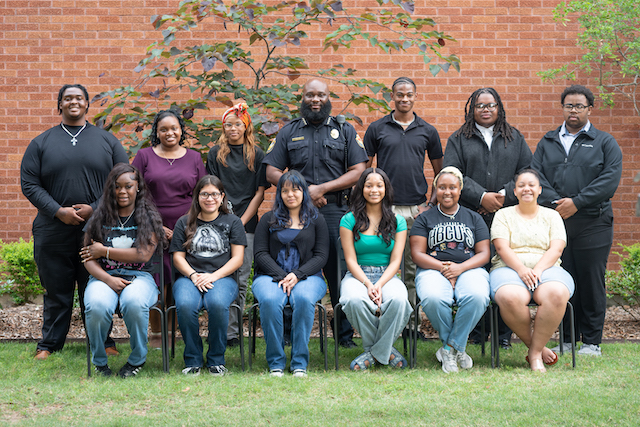DR. RAMAMOHANA — Everything you need to know about allergies
Published 12:04 am Wednesday, February 17, 2021
|
Getting your Trinity Audio player ready...
|
A substance that causes an allergic reaction is called an allergen.
Many allergens are everyday substances that are harmless to most people. However, anything can be an allergen if the immune system has a specific type of adverse reaction to it.
An allergic reaction occurs when a person’s immune system becomes hypersensitive to certain substances, such as foods, pollen, medications or bee venom.
One of the roles of the immune system is to destroy harmful substances in the body. If a person has an allergy to a substance, their immune system will react as though that substance is harmful and try to destroy it.
Over 50 million people in the United States experience an allergic reaction each year. This reaction can lead to symptoms such as swelling. If swelling affects the airways, it can become life-threatening.
Allergies develop when a person’s immune system overreacts to substances that are usually harmless. The first time a person is exposed to an allergen, they do not usually experience a reaction. It often takes time for the immune system to build up a sensitivity to the substance.
In time, the immune system learns to recognize and remember the allergen. As it does so, it starts making antibodies to attack it when exposure occurs. This buildup is called sensitization.
Some allergies are seasonal. For example, hay fever symptoms can peak between April and May, when the tree and grass pollen count in the air is higher. A person may experience a more severe reaction as the pollen count rises.
Symptoms are an allergic reaction that cause inflammation and irritation. However, the specific symptoms will depend on the type of allergen. For example, allergic reactions may occur in the gut, skin, sinuses, airways, eyes or nasal passages. Below are some triggers and the symptoms they may cause in people with an allergy.
Dust and pollen: These allergens might cause a blocked or congested nose, itchy eyes and nausea runny nose swollen and watery eyes and cough.
Food: By law, food manufacturers must clearly label any foods that contain something that is known to cause allergic reactions in some people. Symptoms of food allergens include vomiting, a swollen tongue, tingling in the mouth, swelling of the lips, face and throat, stomach cramps, shortness of breath, rectal bleeding, mainly in children, itchiness in the mouth and diarrhea.
Insect stings: Insect-related allergens can cause wheezing, significant swelling at the site of the sting, a sudden pressure drop, itchy skin, shortness of breath, restlessness, hives or a red and very itchy rash that spread across the body, dizziness, cough and chest tightness.
Medication: Medication is also an allergen and might cause wheezing, swelling of the tongue, lips and face, a rash and itchiness. If symptoms become severe, anaphylaxis can develop.
Anaphylaxis symptoms: Anaphylaxis is the severest form of an allergic reaction. It is a medical emergency and can be life-threatening. Anaphylaxis can develop quickly, with symptoms appearing within minutes or hours of exposure to the allergen.
Research suggests that anaphylaxis most commonly affects the skin and respiratory system. Some symptoms include hives, flushing, itching, difficulty, breathing, wheezing, swelling, low blood pressure, changes in heart rate, dizziness, fainting and loss of consciousness. Recognizing these symptoms can be crucial to receiving timely treatment.
Causes: When an allergic reaction occurs, allergens bind to antibodies that the body produces called immunoglobin antibodies that combat foreign and potentially harmful substances in the body. Once the allergen binds to specific types of cells including mast cells chemicals are released which trigger the symptoms of the allergic reaction. Histamine is one of these chemicals. It causes the muscles in the airways and walls of the blood vessels to tighten. It also instructs the lining of the nose to produce more mucus.
Prevention and precautions: There are no ways to prevent or cure allergies, but it is possible to prevent a reaction or manage the symptoms if a reaction occurs. Those at risk of an allergic reaction should take measures to avoid exposure to known allergens. Carry two auto-injectors and know how to use them correctly. Inform friends, relatives, colleagues and others about the allergy and how to use the auto-injector. Consider wearing a medical identification bracelet with details of the allergy. Seek allergy testing to know which substances to avoid!
Dr. Ramamohana Reddy Appannagari is an environmental ecologist and researcher with CHEMTEX Environmental & Industrial Hygiene Laboratory in Port Arthur. He can be reached at reddy.usa2017@gmail.com.






